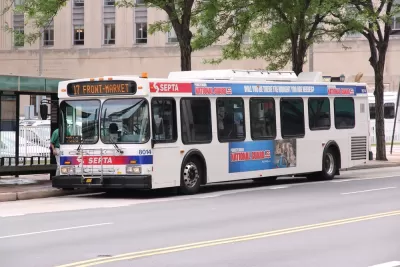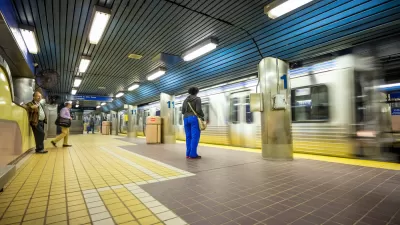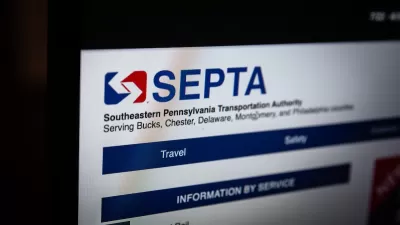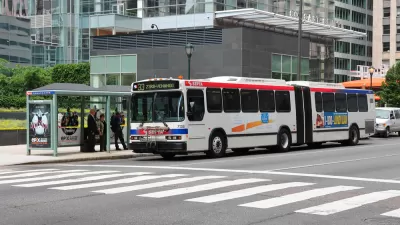A two-year pilot program from SEPTA offers free fares to 25,000 low-income riders.

A two-year pilot program in Philadelphia offers free transit fare to low-income residents. As Maylin Tu explains in Next City, “Participants in Philly’s Zero Fare pilot must be 18 to 64 years old, have an income at 150% or less of the federal poverty line, and be Philadelphia residents.”
The program launched last August and, as of mid-April, participants took over 1.8 million trips. “Increasing ridership through the Zero Fare program could enhance trust and safety in the system as a whole, adding “eyes on the street’,” says Connor Descheemaker, coalition manager for Transit Forward Philadelphia.
The program is unique in that eligible residents don’t need to take action. “Unlike many similar programs, there is no need to apply. Instead, the city used a lottery system to select 90% of participants from a pool of eligible residents enrolled in a qualifying low-income benefits program. For the other 10%, the city worked with community-based organizations to reach those who might not be eligible due to immigration status.”
The city acknowledges the program could benefit a much larger segment of the population if expanded. However, future funding is uncertain. “Unlike other cities, Philadelphia is extremely limited in its ability to directly fund transit, says Descheemaker, due to a state legislature split along partisan lines.”
FULL STORY: Philly Is Giving Free SEPTA Rides to 25,000 Low-Income Residents. No Strings Attached.

Study: Maui’s Plan to Convert Vacation Rentals to Long-Term Housing Could Cause Nearly $1 Billion Economic Loss
The plan would reduce visitor accommodation by 25,% resulting in 1,900 jobs lost.

North Texas Transit Leaders Tout Benefits of TOD for Growing Region
At a summit focused on transit-oriented development, policymakers discussed how North Texas’ expanded light rail system can serve as a tool for economic growth.

Using Old Oil and Gas Wells for Green Energy Storage
Penn State researchers have found that repurposing abandoned oil and gas wells for geothermal-assisted compressed-air energy storage can boost efficiency, reduce environmental risks, and support clean energy and job transitions.

Private Donations Propel Early Restoration of Palisades Playground
Los Angeles has secured over $1.3 million in private funding to restore the Pacific Palisades playground months ahead of schedule, creating a modern, accessible space that supports community healing after recent wildfires.

From Blight to Benefit: Early Results From California’s Equitable Cleanup Program
The Equitable Community Revitalization Grant (ECRG) program is reshaping brownfield redevelopment by prioritizing projects in low-income and environmental justice communities, emphasizing equity, transparency, and community benefits.

Planting Relief: Tackling Las Vegas Heat One Tree at a Time
Nevada Plants, a Las Vegas-based nonprofit, is combating the city’s extreme urban heat by giving away trees to residents in underserved neighborhoods, promoting shade, sustainability, and community health.
Urban Design for Planners 1: Software Tools
This six-course series explores essential urban design concepts using open source software and equips planners with the tools they need to participate fully in the urban design process.
Planning for Universal Design
Learn the tools for implementing Universal Design in planning regulations.
Ascent Environmental
Borough of Carlisle
Institute for Housing and Urban Development Studies (IHS)
City of Grandview
Harvard GSD Executive Education
Toledo-Lucas County Plan Commissions
Salt Lake City
NYU Wagner Graduate School of Public Service





























